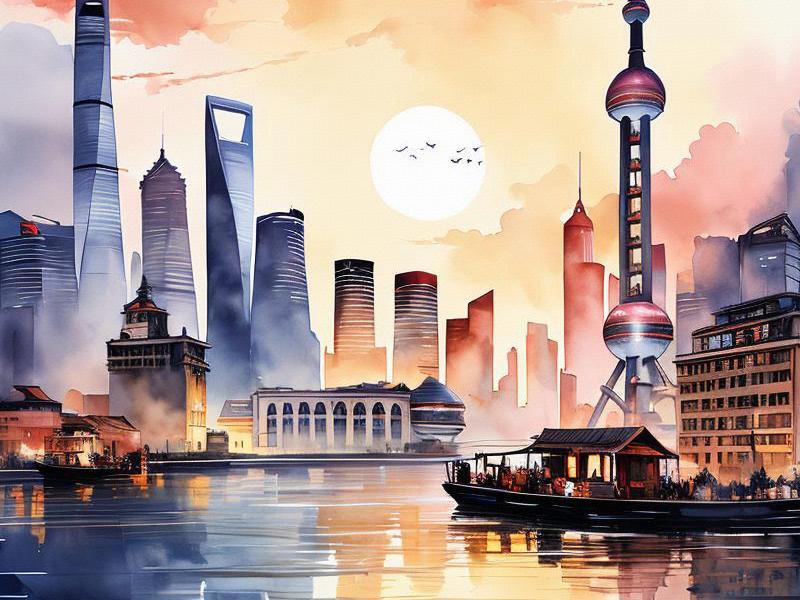This article delves into the rich tapestry of Shanghai's humanistic spirit, exploring its historical roots, cultural evolution, and the harmonious blend of tradition and modernity that defines the city's soul.

Nestled along the banks of the Huangpu River, Shanghai stands as a beacon of China's economic and cultural prowess. Yet, beyond its glittering skyline and bustling streets lies a profound humanistic spirit that has shaped the city's identity and continues to influence its development.
The humanistic spirit of Shanghai is deeply rooted in its history. As a port city that opened to the world in the 19th century, Shanghai became a melting pot of cultures, ideas, and traditions. This cosmopolitan heritage is evident in the city's architecture, cuisine, and arts, which reflect a unique blend of Eastern and Western influences.
The Bund, a historic waterfront area, stands as a testament to Shanghai's colonial past. Here, the juxtaposition of Gothic, Baroque, and Romanesque-style buildings against the backdorpof the Huangpu River offers a glimpse into the city's diverse architectural heritage. These structures, once the offices of foreign banks and trading companies, now house museums, art galleries, and restaurants, serving as a bridge between Shanghai's past and present.
In the heart of the city lies the Yu Garden, a classical Chinese garden that showcases the essence of traditional Chinese culture. Built in the Ming Dynasty, the garden features meticulously landscaped rockeries, ponds, and pavilions, embodying the principles of harmony and balance. It stands as a reminder of Shanghai's deep-rooted cultural heritage and its ability to preserve and celebrate its traditions amidst rapid modernization.
新上海龙凤419会所 Shanghai's humanistic spirit is also reflected in its vibrant arts scene. The city has long been a hub for artists, writers, and musicians, attracting talent from across the country and abroad. The Shanghai Museum, one of the largest and most prestigious museums in China, houses an impressive collection of ancient Chinese art, including ceramics, calligraphy, and paintings. Its exhibitions not only showcase the city's rich cultural heritage but also provide a platform for contemporary artists to express their creativity.
The city's literary tradition is equally celebrated. Shanghai has been home to many renowned writers, such as Lu Xun, Mao Dun, and Eileen Chang, whose works have left an indelible mark on Chinese literature. Today, the city continues to foster a thriving literary scene, with numerous bookstores, cafes, and literary festivals that attract readers and writers from all walks of life.
In recent years, Shanghai has made significant efforts to preserve its historical and cultural landmarks while embracing modernity. The transformation of the former French Concession into a vibrant cultural district is a prime example. Once a symbol of colonial rule, the area has been revitalized with art galleries, boutique shops, and restaurants, creating a space where history and modernity coexist harmoniously.
The city's commitment to sustainability and green development further highlights its humanistic spirit. Shanghai has implemented various initiatives to reduce pollution, promote renewable energy, and enhance urban living conditions. The construction of the world's first large-scale carbon-neutral airport, the Hongqiao International Airport, demonstrates the city's dedication to environmental stewardship.
上海龙凤419贵族
Shanghai's humanistic spirit is also evident in its approach to education and community development. The city has invested heavily in education, ensuring access to quality learning opportunities for its residents. The establishment of the Shanghai International Studies University and Fudan University has attracted students and scholars from around the world, fostering a culture of academic excellence and international exchange.
Community development programs in Shanghai focus on improving the quality of life for its residents. Initiatives such as the "15-minute community life circle" aim to crteeaconvenient and accessible public services within a 15-minute walk or bike ride, promoting a sense of belonging and well-being among residents. These programs reflect the city's commitment to inclusivity and social harmony.
The blend of tradition and modernity in Shanghai is perhaps best exemplified by the city's skyline. Towering skyscrapers, such as the Shanghai Tower and the Oriental Pearl Tower, stand alongside historic buildings, creating a striking contrast that symbolizes the city's dynamic evolution. This harmonious coexistence of old and new is a testament to Shanghai's ability to embrace change while preserving its unique identity.
上海龙凤419会所 Shanghai's humanistic spirit is not confined to its physical landscape; it is also reflected in the values and aspirations of its people. The city's residents are known for their entrepreneurial spirit, cultural appreciation, and openness to the world. This spirit is evident in the city's vibrant business environment, where innovation and creativity thrive, and in its diverse cultural scene, which celebrates the richness of human expression.
The city's leadership has also played a crucial role in fostering the humanistic spirit. The Shanghai Municipal Government has implemented policies that promote cultural preservation, environmental sustainability, and social equity. These efforts have created a conducive environment for the city's continued growth and development.
As Shanghai continues to evolve, its humanistic spirit remains a guiding principle. The city's ability to balance tradition and modernity, preserve its cultural heritage, and embrace change will be essential in shaping its future. By doing so, Shanghai not only enhances the quality of life for its residents but also contributes to the global dialogue on urban development and cultural preservation.
In conclusion, Shanghai's humanistic spirit is a cornerstone of its identity, reflecting its rich history, vibrant culture, and commitment to sustainability. The city's ability to harmonize tradition and modernity, preserve its cultural heritage, and foster a sense of community will continue to inspire and captivate the world. As Shanghai looks to the future, its humanistic spirit will remain a beacon of hope and progress, guiding the city towards a brighter and more inclusive tomorrow.